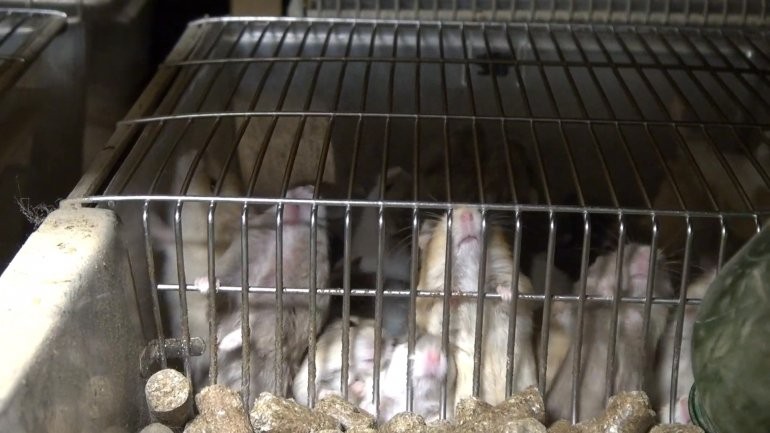Have you ever wondered about the journey your adorable pet hamster took before arriving at the brightly lit pet store? While pet stores offer a convenient way to bring these furry friends home, the reality behind their sourcing is often less idyllic than you might imagine. Understanding where pet stores get their hamsters from is crucial for making informed and ethical decisions as a pet owner.
The Unseen World of Rodent Mills
Sadly, a significant number of hamsters sold in chain pet stores originate from facilities known as “rodent mills.” These are large-scale breeding operations that prioritize profit over the well-being of the animals. Rodent mills breed hamsters, along with other small pets like gerbils, mice, and rats, in mass quantities to supply the demand of the pet trade.
Conditions within rodent mills are frequently far from ideal. Animals are often housed in cramped, unsanitary cages or containers. Overcrowding is common, with multiple hamsters confined together in spaces that are too small, leading to stress, aggression, and the spread of disease. Female hamsters are often bred repeatedly with little time to recover between litters, leading to exhaustion and health issues. The focus is on maximizing production, and individual animal care is often neglected.
Investigations Expose Harsh Realities
Organizations like PETA have conducted undercover investigations into rodent mills, revealing disturbing conditions. Their investigations have documented overcrowded cages, sick and injured animals left without proper veterinary care, and a general disregard for basic animal welfare standards. These investigations highlight the stark contrast between the image of happy, healthy pets presented in pet stores and the often harsh reality of their origins.
The lack of space and proper enrichment in rodent mills can lead to significant stress for hamsters. Stress weakens their immune systems, making them more susceptible to illness. Furthermore, the genetic pool within these facilities can become limited, leading to inbreeding and the increased likelihood of genetic health problems in the hamsters they produce.
Ethical and Legal Implications
The practices of rodent mills often raise serious ethical concerns and may even violate animal welfare laws. Many countries have animal welfare acts in place that mandate basic standards of care, including providing a suitable environment, diet, and protection from pain, injury, suffering, and disease. Rodent mills that fail to meet these basic needs may be operating illegally.
Ethical breeders, in contrast to rodent mills, prioritize the health and well-being of their animals. They provide spacious and clean enclosures, ensure proper nutrition and veterinary care, and carefully manage breeding to avoid inbreeding and genetic health issues. Ethical breeders focus on improving the breed and producing healthy, well-socialized pets, not just maximizing profit.
The Impact on Hamster Health and Genetics
The mass breeding and poor conditions in rodent mills have a detrimental impact on the overall health and genetic diversity of hamsters. Inbreeding, common in these facilities, reduces genetic variability, which can weaken the immune system, shorten lifespan, and increase the risk of hereditary diseases. This is a stark contrast to wild hamster populations where natural selection favors healthy individuals with strong genetics.
Sadly, hamsters from rodent mills are more prone to a range of health issues, some of which may not become apparent until after they are brought home. These can include conditions like wet tail, skin problems, neurological issues, and genetic deformities.
Choose Adoption and Ethical Sources
Understanding where pet store hamsters often come from empowers you to make a more compassionate choice. Instead of supporting rodent mills by purchasing from chain pet stores, consider adoption. Many wonderful hamsters are in need of loving homes and can be found at local animal shelters and rescue organizations.
If you are looking for a specific breed and wish to purchase from a breeder, seek out ethical breeders who prioritize animal welfare and genetic health. By choosing adoption or ethical breeders, you can help break the cycle of demand that fuels rodent mills and contribute to a more humane pet industry.
See adoption and rescue centers for hamsters to find a hamster in need near you.
